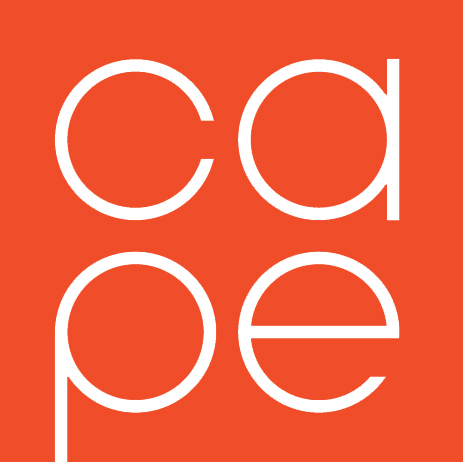
This study, led by CAPE, in collaboration with TAAF, investigates the workplace experience for Asian American creative executives in the entertainment industry.
According to a study conducted by the Geena Davis Institute on Gender in Media, 95.1% of Asian American, Native Hawaiian, and Pacific Islanders (AANHPIs) working in the entertainment industry surveyed in the study agreed that AANHPI representation behind-the-scenes is inadequate. A majority of the respondents described experiencing microaggressions, blatant racism, and tokenization. Moreover, 93.3% agree that representation on screen is similarly lacking. There is a need to better understand how Asian American professionals experience the workplace in the entertainment industry, specifically barriers to entry and promotions, day-to-day challenges, and factors that contribute to attrition and industry pivots.
Who is the study about?
This first-of-its-kind study focuses on one of the most critical, but often overlooked, components of the narrative change ecosystem: creative executives. The purview of creative executives includes, among other duties, finding and acquiring intellectual property and other source material, hiring talent including writers and directors, casting, and ultimately wielding the power to greenlight projects and shepherd them to screen.
How was the study conducted?
Supported by TAAF with outreach conducted by CAPE, the study methodology drew on survey respondents from a pool of current and former creative executives at multiple levels ranging from C-suite executives to assistants. The study was supplemented with confidential qualitative focus groups and interviews that surveyed participants’ working experiences in the entertainment industry.
CAPE and TAAF set out to survey AANHPI creative executives in the entertainment industry. However, due to the low number of responses from respondents who identified as Native Hawaiian or Pacific Islander (NHPI), and the fact that all of the NHPI respondents also identified as both Asian and Pacific Islander, the report focuses largely on Asian and Asian American perspectives. It does, however, include Native Hawaiian and Pacific Islander perspectives where possible and intentionally does not use the AANHPI acronym when it might not fully represent NHPI perspectives.
This study brings to light the issues faced by Asian American creative executives.
Key Findings
Respondents felt that their Asian American identity is a double-edged sword.
Creative executives of Asian descent brought diversity and unique insights, but were also tokenized and seen as diversity hires.
Asian American creative executives grappled with the expectations of fitting into Western norms or meeting high standards of Asian culture knowledge.
Asian American women faced challenges in regards to the intersection of gender and ethnicity.
This includes sexism, age-related biases, compensation disparities, and difficulties in career advancement, particularly for mothers.
A majority of respondents across levels felt that they experienced different treatment because of their racial/cultural background or how they looked.
Experiencing differential treatment because of how they look or their racial or cultural background was most acutely felt by entry (50%) and senior level (68%) staff.
A majority (52%) of respondents across all ranks reported lack of mentorship as a challenge.
Additionally, 88% of respondents expressed a desire to have mentors from their racial/ethnic background, echoing the adage: “You can’t be what you can’t see.”
Almost 1 out of 5 respondents across the industry expressed they were looking to pivot to a different capacity within the entertainment industry.
Due to the all-consuming life of being in entertainment, stress, poor pay, slow growth, and resulting mental health considerations, respondents contemplated leaving or were forced to pivot for more work-life balance.
Key Recommendations
For senior-level executives: Intentionally recruit diverse people of color; establish paid internships to attract more AANHPI talent; organize company-wide trainings on topics such as intersectionality, class, race, microaggressions, and racism.
For entry- and mid-level executives: Leverage networking opportunities to connect with higher-level executives; proactively seek mentoring or advice even through cold calls; develop a personal voice rooted in their experiences and identity; actively work on increasing visibility to supervisors.
TAAF serves the Asian American and Pacific Islander community in their pursuit of belonging and prosperity that is free from discrimination, slander, and violence. Founded in 2021 in response to the rise in anti-Asian hate and to address the long standing underinvestment in AAPI communities, TAAF funds best in class organizations working to mobilize against hate and violence, educate communities, and reclaim our narratives through our core pillars of Anti-Hate, Education, Narrative Change, and Resources & Representation. Through our grants, high-impact initiatives and events, we're creating a permanent and irrevocable sense of belonging for millions of Asian Americans and Pacific Islanders in the United States. For additional information about TAAF, please visit taaf.org.
CAPE is the premier non-profit organization creating opportunities and driving change for Asian and Pacific Islander (API) success in Hollywood. We work to shift culture through storytelling to create a better world. For over 30 years, CAPE has fought for API representation in film and television, because what we watch on our screens should reflect the world in which we live and project a better one. CAPE advances representation for APIs in Hollywood through three main verticals: (1) nurturing and engaging creative talent and executive leadership; (2) providing cultural script consulting and talent referrals through the CAPE Database; and (3) championing projects for critical box office and streaming success. Follow @capeusa on Instagram and X or visit their website at capeusa.org.
The CAPE and TAAF teams would like to acknowledge Lena Pham, consultant for her work on cleaning and analyzing the data and supporting writing of the report; Maya Hernandez, Ph.D for facilitating interviews; Yukako Fujimori for note-taking; and Jennifer Kim Van Nguyen for her beautiful design.





